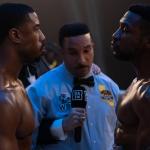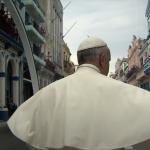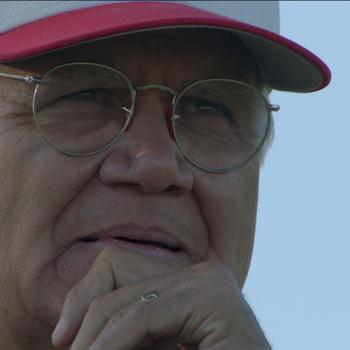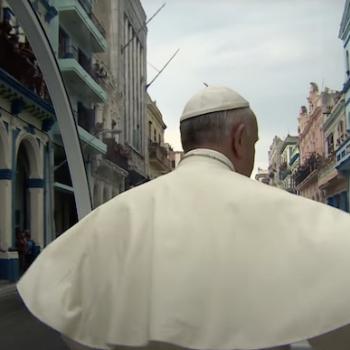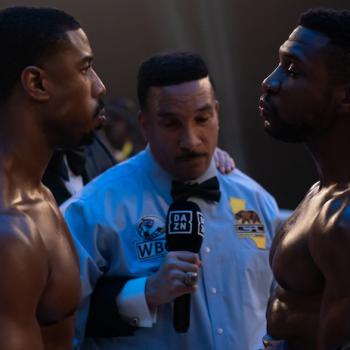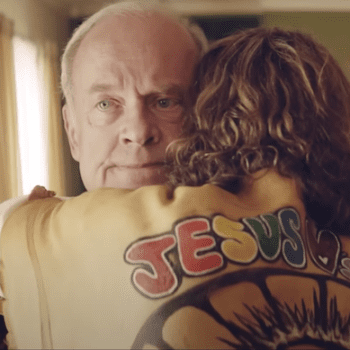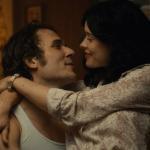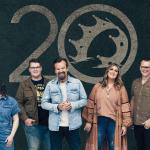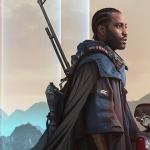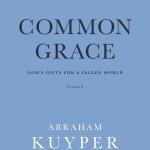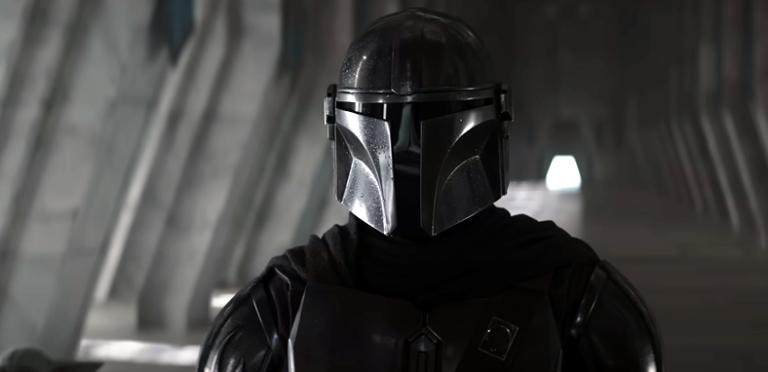
I swear on my name and the names of the ancestors… That I shall walk the Way of the Mand’alor… And the words of the Creed shall be forever forged in my heart. This is the Way.
So goes the Mandalorian Creed—tenants treated by one-time bounty hunter Din Djarin as sacred. That creed (and what it represents) is more than what he believes; it’s who he is. It’s so important to him, in fact, that he’s willing to do almost anything to walk in the Way again—including making a pilgrimage to a cursed planet to bathe in its living waters.
If the first two seasons of Disney+’s The Mandalorian were all about Din’s relationship with Grogu, the green-skinned, 50-year-old “child,” Season Three is settling into an examination of faith.
We’re not talking Christian faith, of course (even though a “creed” is defined by Oxford as a “formal statement of Christian beliefs”). The Mandalorian hasn’t gone into whether Din prays or believes in an afterlife or embraces a god or gods. But the Way comes with many of the hallmarks of religion.
And the show seems to be asking two important questions—not just of the Mandalorian, but of us: First, how real is faith? And second, what is it good for?
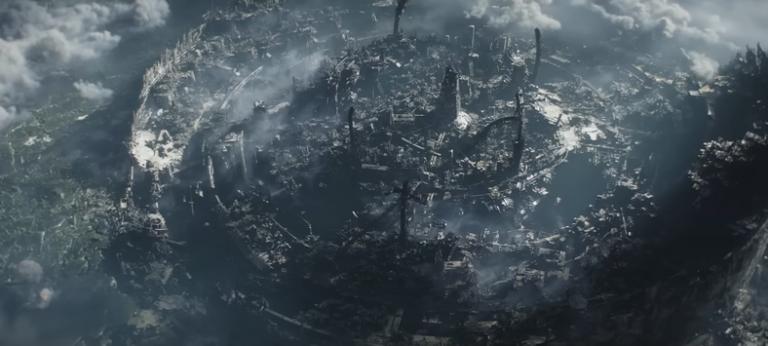
Can’t Go Home Again?
We’re learning more and more about the Mandalorian culture and the Way. March 8’s Episode Two took us to the home planet of Mandalore for the first time. It’s seen better days. Cities lie in ruins. Most of the surface looks like it’s made of glass—presumably during the Empire’s purge of the planet, which the Mandalorians call the “Night of a Thousand Tears.”
The fate of Mandalore seems to echo ancient kingdom of Judah, when Babylonia took it over and sent most of its people into captivity. Those ancient Jews were scattered across the known world—much like the Mandalorians have been across the galaxy, according to Din.
But a curious thing happened the Jewish people when they lost their Promised Land: They found a deeper sense of faith. While plenty of other cultures were wiped clean off the historical slate around the same time and place, the Jewish people remained a people—clinging to their belief in God.
And that’s one of the reasons why the Creed is so important to Din, too. He tells Bo-Katan that while their people are indeed scattered, the creed is the only thing that unites them. “Without the Creed, what are we?” he essentially asks.
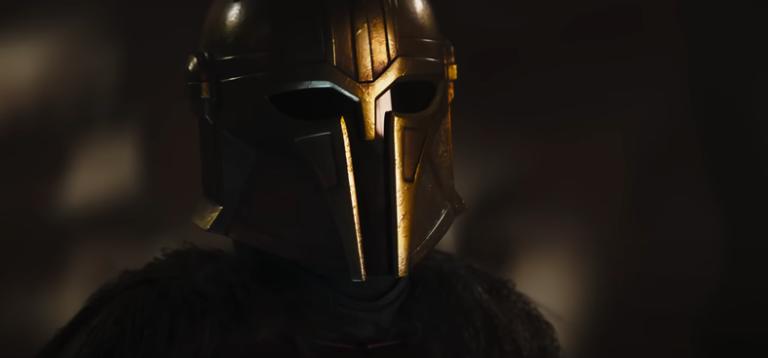
Split and Splintered
Din learned that sense of faith from the very beginning. He was raised in a Mandalorian clan called The Tribe, which in turn was a part of a larger, strict sect called The Children of the Watch. If we’re going to stick with the Jewish analogy, the sect feels a bit like Orthodox Judaism—following rules and practices that others had abandoned. Never part of mainstream Mandalorian society, The Children of the Watch were sequestered on a nearby moon and were therefore spared from the Purge on Mandalore.
And in the days since the Purge, the Tribe has remained set apart from the rest of those scattered Mandalorians. Indeed, Din thought that every Mandalorian followed the Way.
Not so, as Din learns when he meets Bo-Katan. She (gasp) takes off her helmet, dismisses the Children of the Watch as a cult and derides Din for believing in “children’s stories.” Though Mandalore before the Purge was nominally religious, she lost her own faith long ago.
On the flip side, you have the Armorer, leader of the Tribe. Much like the Jews thought that the Babylonian captivity was a punishment from God, the Armorer believes that the Mandalorians’ lack of faith brought about the Purge. The people are being punished, and only a return to the Way will ultimately save them.
The Armorer is appropriately pharisaical, too—a religious guardian so strict that initially tells a clearly repentant Din (who committed a mortal sin by removing his helmet last season) that returning to the Mandalorian fold is impossible. Only a dip in Mandalore’s Living Waters can wash away his “transgressions,” and she believes you can’t even get to those Living Waters on that dead planet. But Din’s determined to return to the fold by any means necessary. It’ll be interesting to see—even with Din’s obvious dedication—whether the Armorer allows him to shed his apostate label.
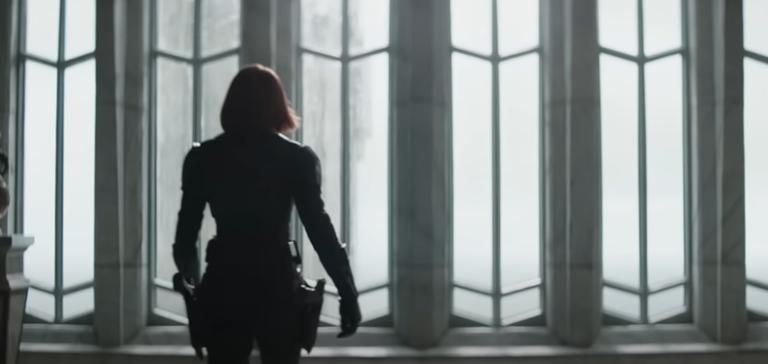
Help Mine Unbelief
I like how The Mandalorian has drawn the lines here, between the skeptic Bo-Katan and the Armorer, as unbending as a beskar spear. And then you have Din—humble, devout and determined. And while Bo-Katan may scoff at Din’s faith, she finds it attractive, too. We can see that she’s moved—against her reason, against her wishes—as Din solemnly recites the Creed as he steps into those Living Waters, clearly an echo of Christian baptism. And when she herself enters those waters and sees a creature that she believed a myth, it almost feels curiously anticlimactic.
It’s a little like how skeptics might process Christianity, I think. If someone showed proof to a skeptic that Noah’s Ark really did crash on Mount Arrarat, that’s one thing. But the real pull is watching a real believer practice her faith with humility and grace and love. That’s where the pull is.
I have a feeling that Din will be heading for his own crisis of faith this season. The Armorer’s rules-based religion comes with chinks. Now that Din has learned more about his own people and, even more critically, formed such a strong bond with Grogu, the Mandalorian may be forced to re-evaluate the Creed. Find room for a little grace inside its rules.
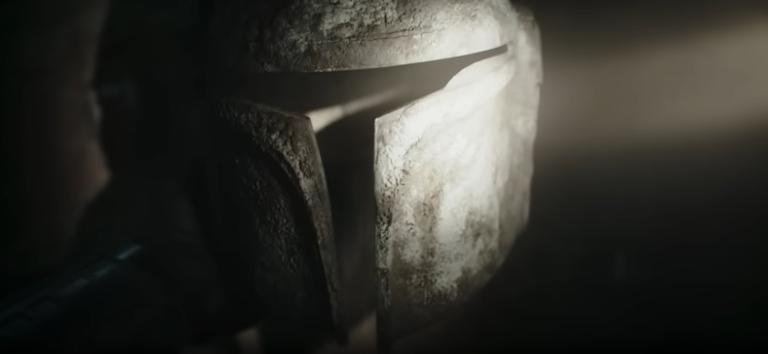
Past Is the Future
Writing for Polygon, Joshua Rivera doesn’t get The Mandalorian’s turn toward religion. He sees it as revisiting Star Wars past, not exploring its futures.
“It would be refreshing — and far more sustainable — if the series’ writers were more interested in probing its characters more deeply than the world that their stories are set in. One feeds into the other; without both, the story languishes.”
I disagree. What we believe is a critical part of who we are. It shapes us, defines us and motivates us. Even those who profess no faith are molded by their skepticism, just as Bo-Katan has been molded by hers. Removing me from the faith that forged me would be more drastic than lopping off an arm or a leg—and, in my opinion, far more crippling.
For Din, the Creed is indeed forged on his heart. You can’t understand the character without understanding the Creed. Far from exploring Star Wars past, The Mandalorian Season Three is exploring new territory—and a place that storytellers in this galaxy often fear to go.


